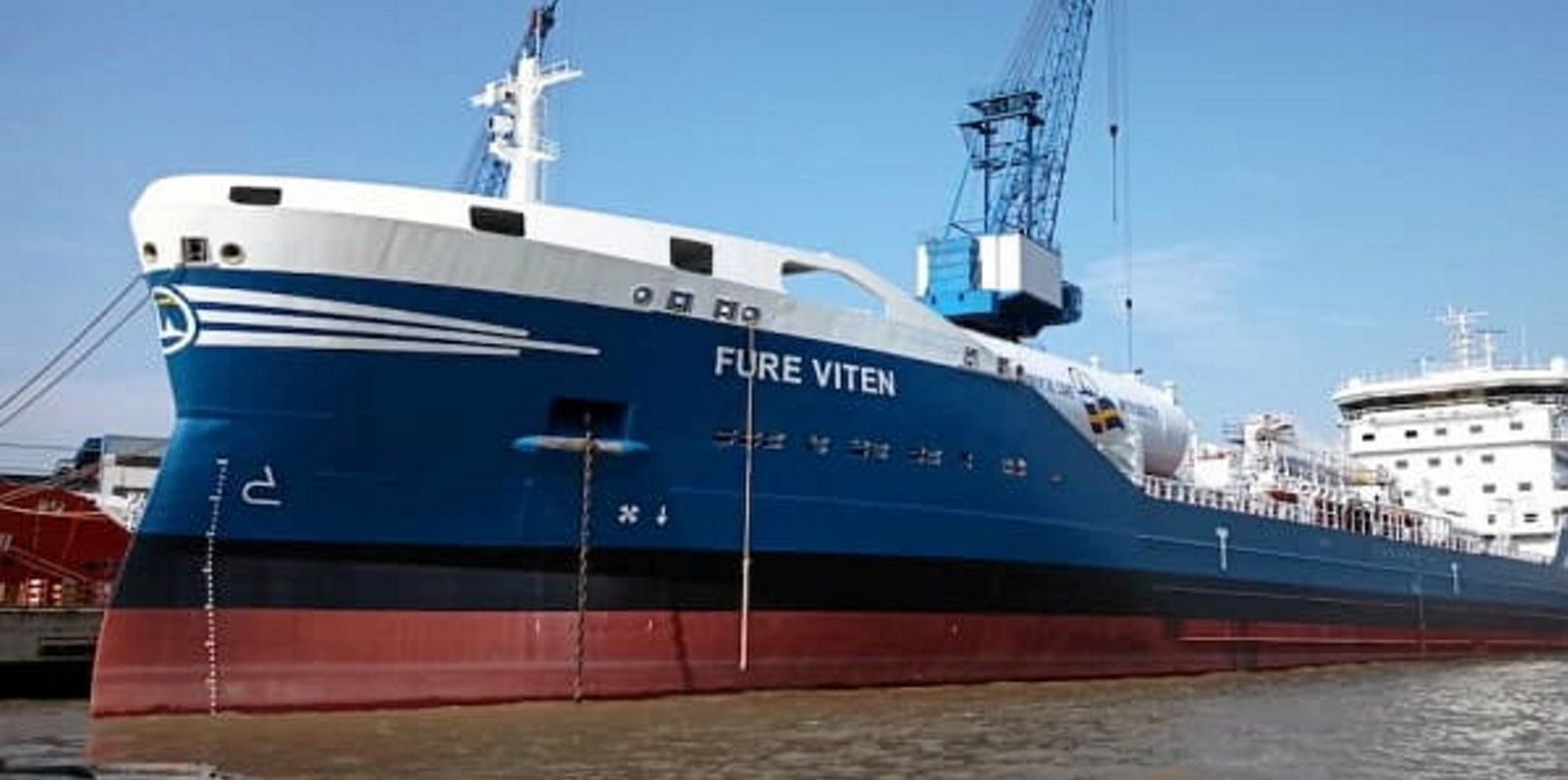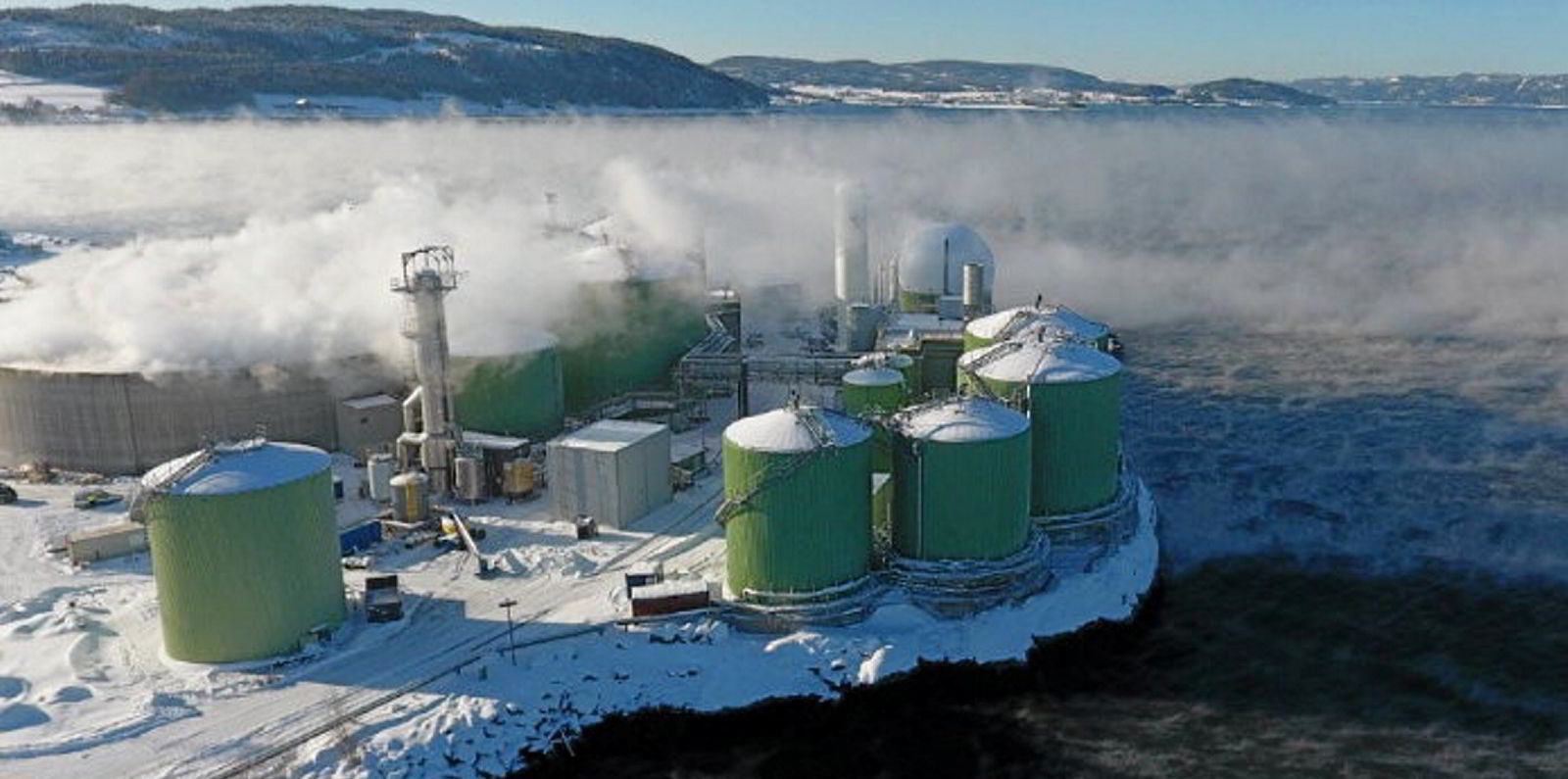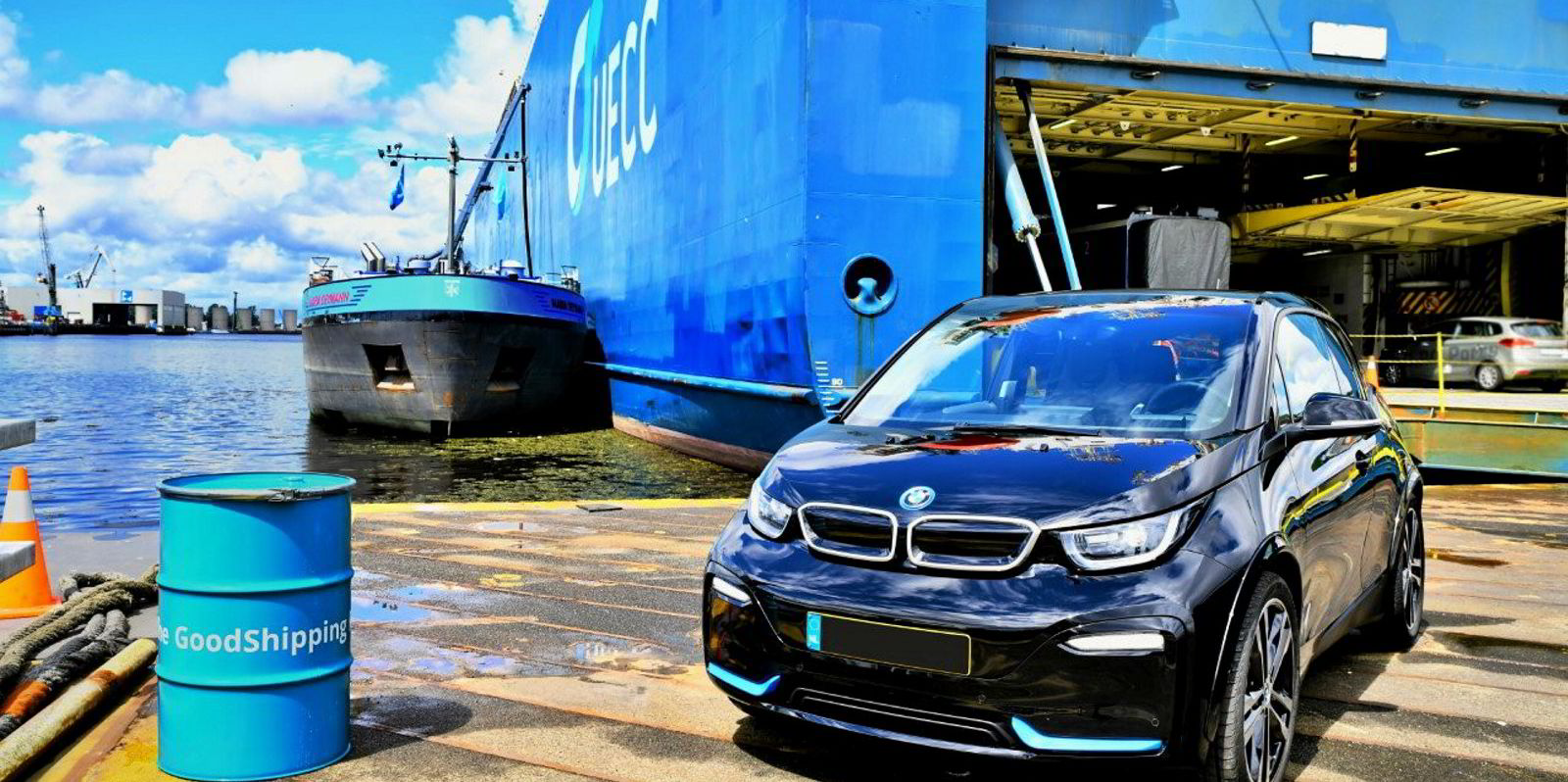Swedish owner Furetank has claimed its new LNG-fuelled tanker is top of its class in terms of energy efficiency.
The 18,000-dwt Fure Viten was delivered on Tuesday by China Merchants Jinling Shipyard (Yangzhou) in China.
The ship will run on LNG or liquid biogas (LBG).
"It is best in class globally when it comes to the UN climate goals for shipping," Furetank said.
The gas propulsion and other fuel-saving solutions gives the ship an Energy Efficiency Design Index (EEDI) value of 4.65, against an International Maritime Organization target of 9.37 for a vessel of the Fure Viten's size.
The Donso-based owner said this is the best result achieved so far for the tanker class.
Future-proof?
"We will operate the ships we build now for the coming 20 years, so we have put a lot of effort into investigating what is the best possible technology that we can invest in today," said Lars Hoglund, chief executive of Furetank.
"Climate change is a reality and we believe that politicians mean what they say. Thus, if we are to survive as a shipping company in the future, we must do our absolute best to reduce our climate and environmental impact."
The Fure Viten is the latest in a series of eight new ships run by the Gothia Tanker Alliance of Swedish owners.
Furetank owns four of them and commercially operates them all.
The vessels are designed by Furetank and FKAB Marine Design, in collaboration with Finland's Wartsila.
Constant evolution
Throughout the design and construction process, energy efficiency has been increased and the EEDI value has been improved, the owner said.
"We have developed ships since the 1980s and used our entire experience to optimise every detail," Hoglund added.
Batteries are being used to help reduce the use of auxiliary engines, while a ducted propeller increases thrust and reduces power requirement.
An improved hull shape minimises drag, and the main engine and shaft generator use variable frequency to increase propeller efficiency and reduce fuel consumption.
Hoglund said the next step will be to operate the ships completely without fossil fuels.
"We are in the process of securing the supply of larger quantities of biogas within a year or so, through an exclusive agreement with a supplier," he added.
The CEO believes that in 2030 the tankers will run largely on LBG with zero fossil fuel emissions.






